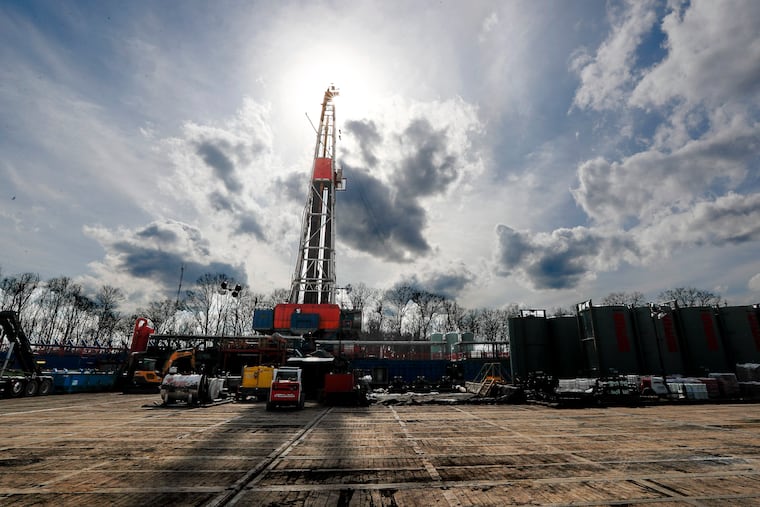From Biden’s hometown, a reminder of the perils of toxic fracking waste | Opinion
The president promised to fight for communities like Scranton, but 10 months into his presidency, he’s yet to use his executive authority to crack down on fracking or regulate its toxic waste.

When Joe Biden came back to Scranton last month, there was a place he didn’t visit: the landfill on the edge of town that’s full of toxic fracking waste.
Biden is a child of Scranton. On Election Day 2020, he returned to his childhood home in Scranton and scratched a message onto the hallway of his house: “From this house to the White House, but for the grace of God.”
The entire town of Scranton held their breath over those crucial days, watching like the rest of the country until every vote came in and was counted. When he finally won, the text message went out: “Party at Joe’s house!” We spontaneously descended on the then-president-elect’s childhood home. It was a ray of hope after four long years and a horrific pandemic — maybe things would get better. But flowing underneath the ground on that celebratory day was Scranton’s dirty little secret — fracking waste.
» READ MORE: Fracking in Pennsylvania used toxic ‘forever chemicals’ as Pa. officials maintain willful ignorance | Editorial
Since the dawn of the coal era, Scranton has been an environmental justice community. Many of us in Scranton are the children and grandchildren of coal miners who risked their lives every day for the coal company’s profits. We grew up with the stories of the men who came home from the mines in body bags, and we’ve seen our rivers run orange from coal mine runoff. More recently, we’ve seen the horrors of the waste industry and fracking. Within the Scranton area, you can find both one of the largest fracked gas power plants east of the Mississippi and one of the largest fracking waste landfills in Pennsylvania.
The Orwellian-named “Keystone Sanitary Landfill” is a symbol of how the fossil fuel industry and its backers have turned Pennsylvania into a dumping ground for their toxic waste. The landfill, built on a network of old coal mines, has been a growing blight on our community since the mid-‘70s. In 1988, the Environmental Protection Agency decided to go ahead and declassify fracking waste as “not hazardous,” a decision that has proven to only benefit the fossil fuel industry.
In Scranton, the local landfill owners saw nothing but profit when the Marcellus Shale boom took off. Toxic fracking waste in landfills is full of oil and grease, heavy metals, radioactive material, and man-made fracking chemicals, many of which have been linked to leukemia, lymphoma, and other cancers.
Biden promised to fight for environmental justice communities like Scranton, but 10 months into his presidency, he’s yet to use his executive authority to crack down on fracking, or at the very least regulate its toxic waste. The failure is part of a disturbing trend on the part of his administration when it comes to fossil fuels. Whether it’s the Line 3 tar sands pipeline in Minnesota, drilling on public lands, oil export facilities in the Gulf of Mexico, or fracking landfills in his own hometown, President Biden has yet to pick a side in the struggle of people vs. fossil fuels. Every day he delays is another day that tens of thousands of people here in Scranton — and millions more across the country — are at risk of drinking toxic water or breathing polluted air.
We know that in Congress, fossil fuel-friendly politicians like Sen. Joe Manchin are standing in the way of helping communities like Scranton, but President Biden doesn’t have to let some schoolyard bullies stop him from defending our community and communities like it.
Through executive actions and regulatory authorities, Biden has all the power he needs to crack down on pollution, stop the reckless expansion of the fossil fuel industry, and set us on the course for a just transition to a clean, renewable energy system.
Congressional action matters, but Biden promised a holistic approach to fighting for environmental justice. He promised to Build Back Better with clean drinking water, investments in clean energy, economic revitalization, and funding for environmental justice communities. That’s a vision that people here in Scranton stand behind. Now, we want him to act.
Janet Brier, MPH, is a Dunmore Borough Council member. Dunmore is a 9-square-mile town that shares a zip code with Scranton.